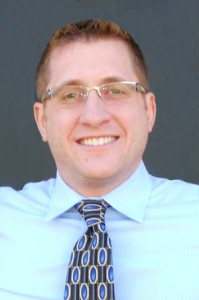Apr 17
2014
The Benefits and Challenges of Connected Healthcare

Guest post by Edward Keiper, president and CEO of Velocity Managed Services.
For physicians’ practices in the 21st century, connectivity is the buzzword. Getting doctors connected to data, patients connected to healthcare providers, and practices connected to networks are just a few of the web-fueled scenarios coming down the pike.
The Health Information Technology for Economic and Clinical Health (HITECH) Act is a game changer and affects just about every aspect of modern medical care. HITECH, part of the American Recovery and Reinvestment Act of 2009, promotes the adoption and meaningful use of health information technology.
As is often the case with a shift this monumental, there are both benefits and challenges of connected healthcare that practice groups will have to address. First, let’s take a look at some of the benefits.
1. Join the Digital Revolution. Just as other industries that went digital years ago, healthcare benefits from the streamlining offered by a networked environment. Clinical interoperability of healthcare IT lowers costs and enhances efficiency by facilitating the comprehensive exchange of health information between care providers, hospitals and patients. The trend is toward innovation in healthcare as the industry as a whole responds to consumer demands and government reforms.
2. Safety in Numbers. As of 2013, more than 323,000 American medical practices and hospitals adopted EHRs and attested as meaningful users, indicating a 266 percent increase over 2012, according to CMS statistics. However, even with this upsurge in participation, those numbers represent only a small percentage of US hospitals that currently keep electronic records and contribute to the health information exchange. So, while the risk of being an early adopter is largely gone, your practice group could still be near the front of the adoption wave.
3. It’s easier. As you can see from the statistics in the previous point, healthcare IT adoption is in an early phase, and for most practices, there is a lack of centralization. To help elucidate the complexity of the system, look no further than the state of Florida, where there are at least 672 EHR vendors. Connecting health information digitally creates a central database that greatly simplifies the process of storing and retrieving all patient data. It’s like finding the needle in the haystack every time.